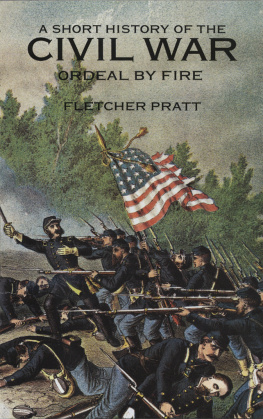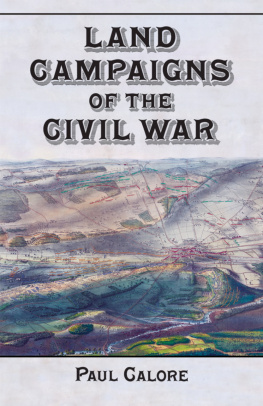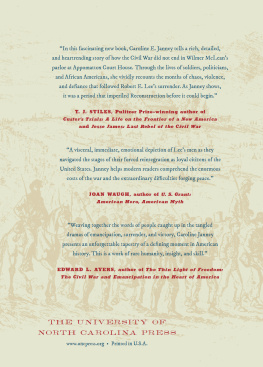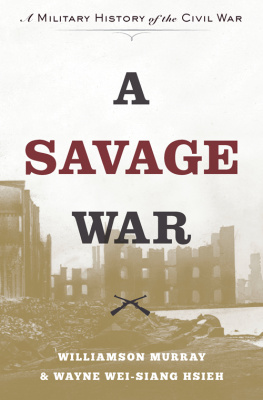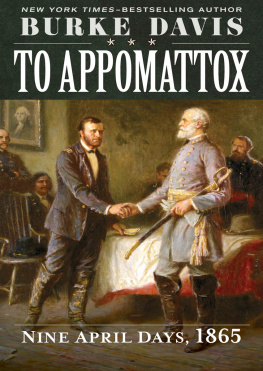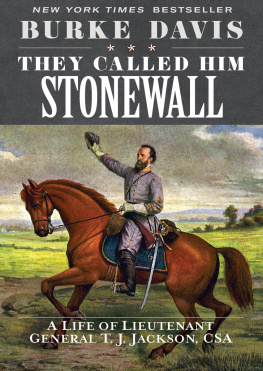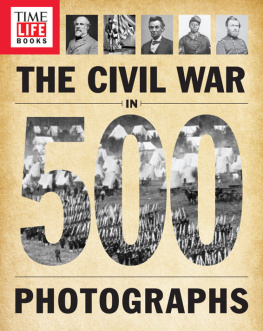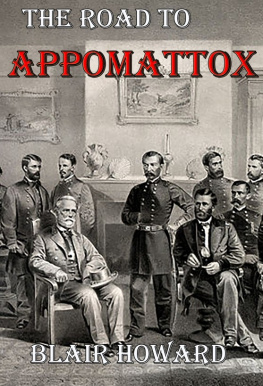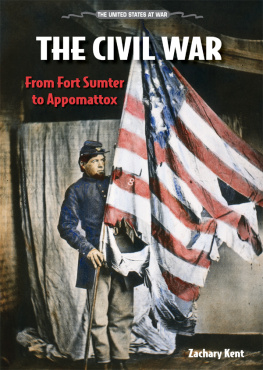CRY HAVOC
T HE dateend of February, 1861. Current meteorological conditionbad, with a sloppy drizzle of rain. The placethe bridal suite of a Philadelphia hotel, a room of red plush and antimacassars, whose prevailing odor was composed in equal parts of fustiness and petroleum, since the lamp was smoking. It was night.
Judd, the political hack, a vague man with fat hands, came in, accompanied by a full-bearded gentleman whom he introduced as Pinkerton, the Illinois detective. There were only two chairs; the visitors sat on the bed and Judd chewed tobacco while they discoursed of a plot to assassinate the President-elect on the way through Baltimore, the train to be held up for the purpose by a gang of plug-uglies called blood-tubs. This tallied with the warning Seward, the Secretary of State-to-be, had sent on from Washington the day before, and with the letter from General Scott; the matter was evidently to be taken seriously. Asked his advice, the detective suggested sending the President through to Washington at once, without warning, on a one-car special he had taken the liberty of ordering
I cant go tonight, said Lincoln, decisively. I have promised to raise the flag over Independence Hall for Washingtons Birthday tomorrow morning and to visit the legislature at Harrisburg.
They tried to argue with him. John Nicolay, that unobtrusive but inevitable secretary, broke it up by arriving with a batch of telegrams, the most important of which contained the text of Jefferson Davis inaugural address. The man had been clever enough not to mention slavery; it was all noble sentiments and righteous indignationelections held under the threat of military power, despotic sectional majority, nothing left but to prepare for war. No olive branchwas the man mad enough to think he could carry things through with the high hand? Irrepressible conflict, quoted someone, Lincoln was drawn into the discussion, and the detective and his plot shunted out of it.
Pinkerton adjourned to the next room with Judd and sent out for Franciscus of the Pennsylvania Railroad and a man from the American Telegraph Company. The four of them cooked up a plan of action, got hold of the pale, efficient Nicolay, and after some difficulty persuaded Lincoln to fall in with it. In the morning, the flag-raising and visit to the legislature passed off on schedule. As soon as the handshaking was over, the President-elect drove to the governors mansion, where they muffled him in a Scottish shawl and flat hat, then hustled him out the servants door and by back alleys to a special train for Philadelphia. At the same moment Franciscus men cut the wires leading out of Harrisburg and stopped railroad traffic; the town was isolated. In Philadelphia the little group stumbled across the tracks in the outer yards and Lincoln boarded the ordinary Washington sleeper. He took the middle section of three that had been reserved under false names, with Pinkerton men in the other two, sitting awake in the dark with revolvers in their laps. Unnecessary; the only halt at Baltimore was when the inspectors came down the line, tapping the wheels, and at six in the morning Lincoln was safe in Willards Hotel.
Seward called in the afternoon, full of sound and fury. He had some changes to suggest in the inaugural, and was disposed to object to the presence of Salmon P. Chase in the Cabinet. The conservative wing of the party, of which he was the mouthpiece, could never stand that western wild man. Before the interview was ended there arrived that king of all doughfaces, Mr. Caleb Cushing of Massachusetts who, as manager for the Breckinridge wing of the Democrats, had been in Charleston through December. A Jobs comforterSir, they are decidedly in earnest. Vigilance committees have expelled every Northerner in the state, including harmless females of the best disposition. Nothing can withhold them, sir, nothing. The Union is destroyed, de facto.
Later, he added privately to Seward that he had not told the worst for fear of upsetting Mr. Lincoln, of whose personal courage he entertained some doubt. There was a secret organization among the Carolinans called the Minute Men, admission to which was gained by paying a dollar and swearing to be in Washington on March 4 with rifle and revolver, ready to prevent the inauguration of the abolitionist President. Seward replied that although Lincoln was a simple Susan he believed him to be a brave man, and capped Cushings tale with that of the Alabama conspiracy to burn the Capitol and Treasury. The two heads wagged dolefully over it half the night, but without arriving at any remedy; probably neither man trusted the other.
On Monday President Buchanan made his duty call, and the two chief executives exchanged compliments. The retiring head of the state looked aged and somewhat haggard. Over the week-end he had been the victim of a racking discussion with the South Carolina commissioners, in which they pressed him so fiercely about his implied promise to yield up Fort Sumter, which was all the national government held in their state, that he burst out at them, You dont give me time to consider; you dont give me time to say my prayers. I always say my prayers when required to act on any great state affair, and they gazed at each other, uncomfortable and ashamed. Poor old man, he was breaking up, ungracefullyanother month of it would kill him. The world spun too giddily for a President who wished to consult God and then compromise with Mammon, and he could no longer trust his Cabinet. It had become certain that Secretary Floyd of the War Department had been selling the secessionists arms from the Federal arsenals. The Treasury had been left in a terrific jam by another secessionist; the government was effectively bankrupt, no money to pay official salaries. Senator Slidell had to smuggle his trunk out at night, being unable to meet his board bill.
Wednesday came the official receptions with flowers and a good deal of oratory. Senator Douglas, who had come so near being President Douglas, remained behind the rest to make an impassioned plea for conciliation of the South. Lincoln asked him what kind of conciliation he meant; he replied by fetching out a document from the peace conference headed by that old buffer Tyler, reappeared in the ancient cerements of his forgotten grave, which offered the extension of slavery to the territories and a constitutional amendment forbidding Congress to touch slavery thenceforth. Lincoln said no on the territories, the conscience of the North was up, but he was willing to try the amendment. The next morning it was pushed through both houses with lightning speed by united efforts of the Republicans and Douglas Democrats, but that same afternoon the Louisiana senators resigned and the South Carolina commissioners let Seward know that the least they would accept was peaceful separation. No compromise.
In the evening there was a dinner with General Scott and some of the Republican leaders. The general tone was despairMerrill of Ohio, who had business connections South, had been writing to call in debts and exhibited two of the replies:
I promise to pay, five minutes after demand, to any northern Abolitionist, the same coin in which we paid John Brown.
I cannot return the goods, for they are already sold and the money invested in muskets to shoot you damn Yankees.
Conkling and Kennedy of New York had seen the papers; their city was in a turmoil; stocks selling at fractions, and the council considering a proposal to declare New York a free city, maintaining trade relations with both the old republic and the new. Harpers Weekly had a vicious cartoon of the flight of the President from Harrisburg in a fit of ague; the Herald announced that in Georgia they were taking oaths to wear no clothes produced under the regime of the third-rate slang-whanging lawyer and his gang of Black Republicans. Lincoln looked round the table and observed that he would like to see some of the Georgia gentlemen clad in costumes produced in their own state, that is, a shirt-collar and a pair of spurs, and the gloom dissolved in snickers.

